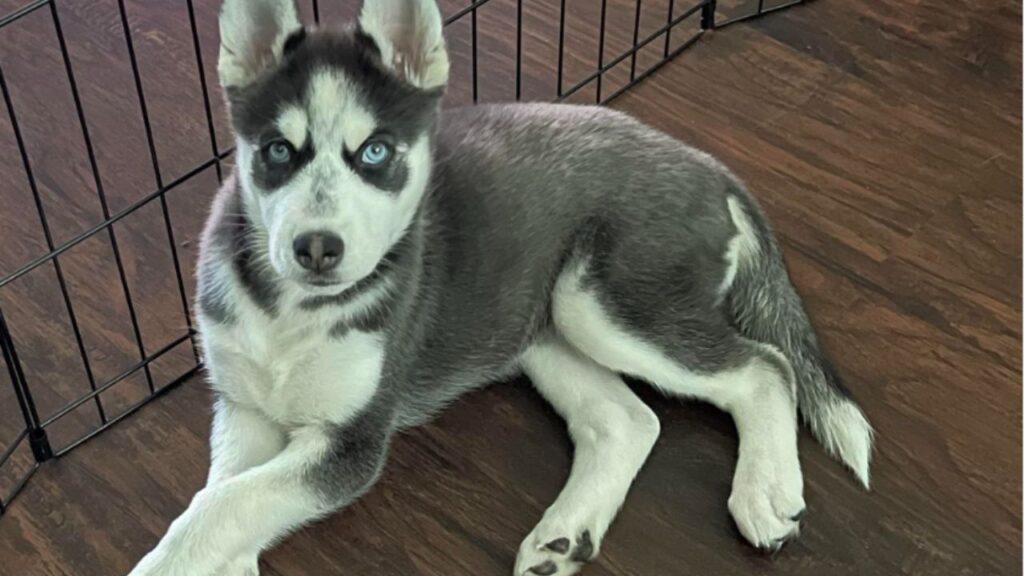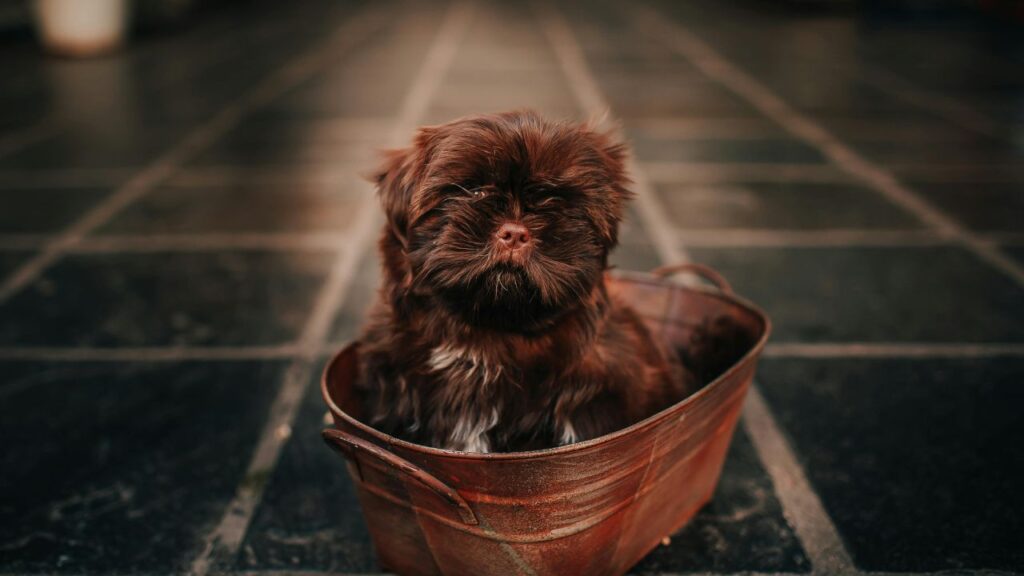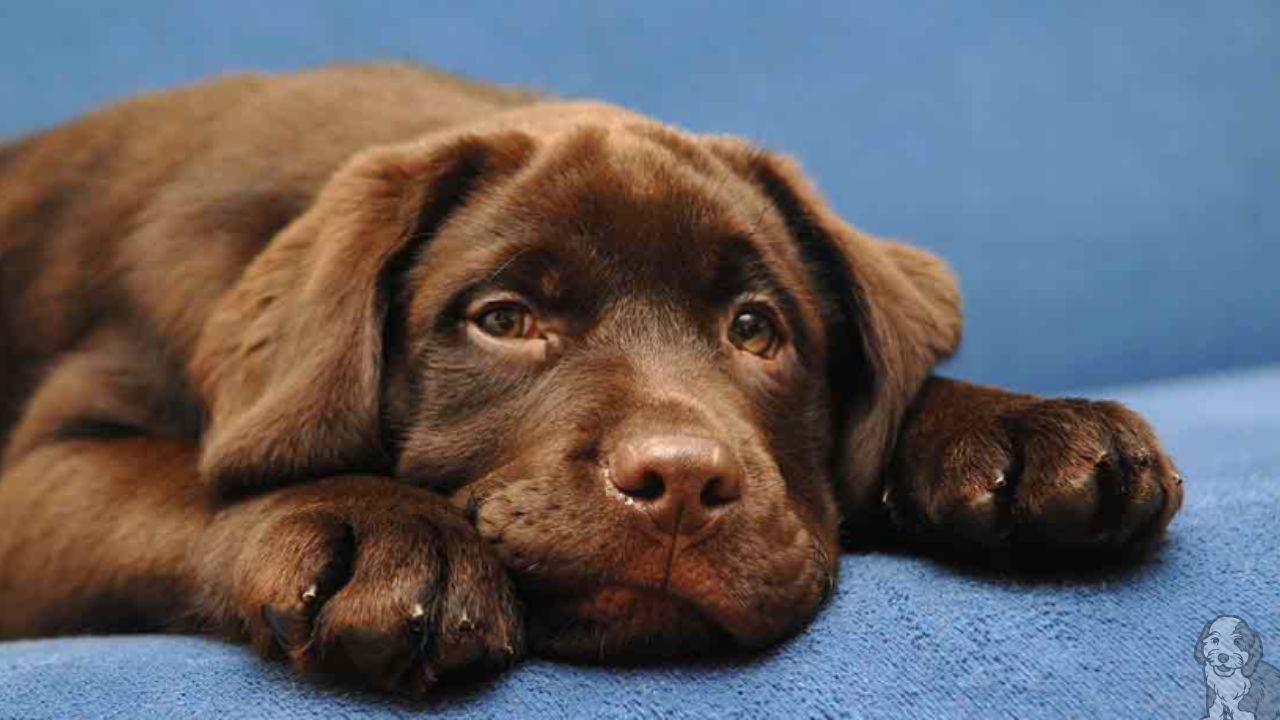As an Amazon Associate, I earn from qualifying purchases

Your 10-week-old puppy is just a baby, and he has survived his whole life up to this point only in the care of his mother. Understanding what to expect with this will keep your sanity for house training and keep a spotless home.
These pups are just coming up four months – toilet training is the very next thing for them and such a milestone of course takes a little longer to establish – endless patience.
A 10-Week-Old Puppy’s Bathroom Habits
Even at 10 weeks old a puppy is still very much learning, especially in the department of bathroom habits. They are too young to be fully potty trained but by this age, you can already see some more CONSISTENT behavior. To give a hint of what your puppy will be expecting as well as offer some useful tips for potty training.
Pooping Frequency of a 10-Week-Old Puppy
At this age, puppies are likely to poop a lot. They might poop after every meal. This can be up to 5 times a day. Each puppy is different, so don’t worry.
| Meal Time | Likely Poop Time |
|---|---|
| Morning Meal | 10-30 minutes after eating |
| Midday Meal | 10-30 minutes after eating |
| Evening Meal | 10-30 minutes after eating |
| Snacks/Treats | Varies |

Factors Affecting Pooping Frequency
- Diet: Good food equals good poops. Bad food can mean more poops.
- Water Intake: Drinking more can lead to more pee and poop.
- Activity Level: A playful puppy might poop more often.
- Health: Sick puppies can poop more or less. Check with the vet if you’re worried.
Signs of Healthy Puppy Poop
As someone raising a puppy, you should realize that poop plays an important part in making sure your baby is still healthy. There are some things you might expect to see in healthy puppy poop that confirm their bowels are moving well. Some of the tell-tale signs of good puppy poop:
Consistency
Puppy poo is firm for a puppy), but overall it is not too brittle. It should be the consistency of playdough (to handle, but not so runny) If the feces is watery or loose it could indicate a digestive upset, while rock-hard poop that looks like rabbit raisins could mean dehydration or constipation.
Color
Normally, a puppy’s poop is going to be chocolate brown. For example, the color of your puppy’s stool may indicate health problems (dark black, bright red or yellow, and green can be a problem), while variations are shades can simply depend on what he is eating.
Shape
When the poop is healthy, it will come out in a log form. If it is too loose or your puppy seems to be stressing to go number 2, this can indicate a digestive issue or perhaps that her diet plan needs tweaking.
Smell
Puppy poop does not smell good but If it smells particularly bad, then this could be a sign of illness or that your pup is having a reaction to their food. Smelling worse than normal – this could indicate you have an infection, parasites or indeed are intolerant to your food.
Frequency
Normally, puppies poop a few times a day, so if it is open from 3 to 5 times that will be quite enough. Frequency Increases or Decreases Abruptly — If one minute, you are feeding them once a week, and the next it’s every day, something is up.
Absence of Foreign Objects
Normal feces should not contain whole food particles, hairs, or foreign objects. If so, and you see them taking in things they should not be eating, that is a signal there could possibly be some tummy difficulties or even that your girl or boy might just be ingesting items he must not consume.
No Mucus or Blood
Passing blood or mucus with stool is a dangerous sign. Sometimes it can be normal to have mucus or blood come out but if this keeps happening, it needs a vet check because this might be the giving of an infection, inflammation, or even dangerous enough for intestinal parasites.
When to Worry About Your Puppy’s Poops
Talk to a vet if you see these poop signs:
- If the poop is very hard or very soft.
- If the poop looks funny in color.
- If the poop has blood or worms in it.
- If your puppy cries or hurts when it poops.
- If your puppy is not pooping much at all.
Housetraining and Poop Schedule for Your Puppy
Housetraining is teaching your puppy where to poop.
- Take your pup out after each meal.
- Take them out when they wake up and before bedtime.
- Watch for signs they need to go, like sniffing or circling.
- Say a special word to help them learn. Like “potty”.
- Give them a happy cheer and a treat when they do it right.
Feeding Schedule and Puppy Poops
When and how often you feed your puppy and the type of diet play a role in your pup’s poops; without regular, adequate intake of water puppies cannot easily form formed stools.
But how does your puppy’s feeding schedule play into their poop and what ways you can keep digestion healthy.
The Influence Of Feeding Schedule On Puppy Poop
13) Regular Feeding Times = Regular Poop Is there feeding times in your routine? Puppies generally need a poo 15 minutes – half an hour after eating so if you stick to a time scale it should be easier to predict when it’s toilet o clock.
How Often to Feed Young Puppies Since puppies have small stomachs and their metabolism is higher than the average adult dog, young pups need to eat pretty often. A standard puppy feeding schedule for pups under 12 weeks old includes 3-4 smaller meals.
After every meal, you can count on your puppy to poop. You may reduce the number of meals as your puppy grows, but maintaining intervals will make his or her digestive system stronger.
It Matters How Often Your Dog Eats — and How Much: The more meals she was fed, the more often she pooped. If your puppy is eating multiple small daily meals, they probably will have to take a poop very soon after each. Bigger meals = fewer, larger poops.
Regulate your feeding schedule a little to up or decrease the energy based on how it affects the puppy going potty.
3: Your Puppy’s Poop Consistency will vary depending on his Diet Quality The type and quality of food you provide for your puppy can affect the consistency of poop. Firmer, well-formed stools: Puppy food that is easy to digest and filled with nutrients makes for higher-quality stool.
Meanwhile, crappy food filled with fillers will result in soft, watery stools that will be easy to resist and break your bathroom schedule.
Feeding Guide by Age
- 8-12 Weeks: 4 meals per day.
- Ages 12-24 weeks: 3 meals per day
- Ages 6-12 months: 2-3 meals (Amount)
Feeding your puppy based on its age will help in digesting it properly and you may take it for pooping every day at a similar time. Their digestion gets better as they grow, and you will over time phase out one meal.
- How Soon After Feeding Should I Take My Puppy to the Toilet?
- To do so, take your puppy outdoors at the following moments;
- After they eat: Most puppies need to use the bathroom within 30 minutes of eating.
- It is a given that after naps especially puppies have to go as they wake up.
- Post-Playtime: The excitement from play may cause he/ she to have to go.
2- Monitoring ze poop as it changes in your diet
Diet changes may result in temporary alterations to your puppy’s poop. Not only can changing from wet to dry food (or vice versa) or adding new ingredients would change the texture of your poops.
You have to introduce new foods slowly so that it does not cause severe diarrhea, and make sure when you change the diet of your puppy his poop should be normal as well.
This balanced feeding schedule keeps healthy bowel movements regular and predictable, which is an important part of your pup’s overall health. Feeding your puppy consistently at certain times of the day, and with the right food.

Wrapping Up: Feeding Schedule and Puppy Poops
Having a regular feeding schedule for the growth of your puppy is one thing, but knowing their bathroom routines is something that can help you avoid future accidents in your house. Maintain Regular Meal Times:
By maintaining regular meal times, you can develop a routine to simplify potty training and keep your puppy´s digestive system healthy. The Poop: Keep An Eye On It It is essential to pay attention to the consistency, frequency, and color of your puppy going promising as these too are important signs of their general health status.
Frequently Asked Questions On Understanding Your 10-week-old Puppy’s Bathroom Habits
How Frequently Do Puppies Defecate?
Newborn puppies typically relieve themselves after every feeding, which can be 6-8 times a day, but as they grow, the frequency decreases.
What Affects A Puppy’s Bowel Movements?
A puppy’s bowel movement frequency is influenced by factors like diet, age, exercise levels, and overall health.
Can Diet Changes Impact Puppy Defecation?
Alterations in a puppy’s diet can affect the consistency and frequency of its stools, often leading to more or less frequent defecation.
Is Regular Defecation Important For Puppies?
Consistent defecation is crucial for puppies as it indicates good digestive health and proper functioning of their metabolism
Conclusion
Now that we have concluded our examination of One Your Puppy To Use The Bathroom It Is 10-week old MindsetRemember to exercise patience and consistency.
Through learning your puppy’s tells, setting up a routine, and showing your pup the ways they can be rewarded in going to the bathroom you are laying down a good foundation of lifelong bathroom habits. Here is to many more clean, uneventful days with your four-legged friend.
As an Amazon Associate, I earn from qualifying purchases

